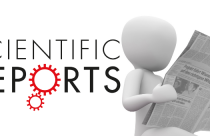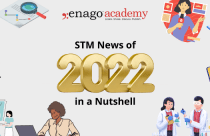Journal of Alternative Facts: It’s About Time!

Do we really want to wade through endless pages of scientific data compiled by researchers over several years, even decades, to determine whether a chemical compound in food is carcinogenic? We could read the abstracts, but according to the dictionary, an abstract is “a thought that exists apart from concrete realities, specific objects, or actual instances.” Actually, that’s the adjective form. Never mind! Still, wouldn’t we rather just see a blog or Twitter post written by the average politician or lobbyist that sums things up more clearly for us? Of course, we would! Who wouldn’t?
Fortunately, we have President Trump’s counselor, Kellyanne Conway, to thank for just that. She apparently coined the phrase “alternative facts” or the “misinformation of facts” in an interview with “Meet the Press” and managed to now make “real science” the purview of non-scientists. Also, fortunately for us, someone saw the need for this new form of non-journalism to be documented and a new publication, the “Journal of Alternative Facts” (JAF), was born.
Journal of Alternative Facts
What a great day for scientists all over the world! JAF (reference: JournalAltFacts) has an open Twitter feed (#JournalOfAlternativeFacts) that anyone can access. It’s first article, “We Have All the Best Climates, Really, They’re Great” (Scientistonce, I.A., 2017), was extremely well received and finally put to rest all claims by researchers that our climate is changing. In fact, it clearly states that America has the best CO2 levels in the world! Who knew?
The comments on this first article were positive, including statements such as, “This is genius! No really it is, they’ve got the best geniuses, just the best, they’re great” (@Scotty_Wanders) and “Clearly #JournalOfAlternativeFacts has all the best papers. Everyone is saying it is the best for peer review” (@MarcKissel).
When interviewed, the editor of JAF stated that it was clear that JAF was necessary not only for the scientific community but also for laypersons around the world to get the real alternative facts about everything from carcinogens in our food to the death of our oceans. As one White House spokesperson told Off the Perch, “Just because someone has spent a lifetime working on a subject that does not directly give him the authority to dismiss any wild guesses in his field”, and although it was long before he was elected, a 2009 Mother Jones article showed tweets from Donald Trump, who claimed that global warming was a concept made up by the Chinese to influence the U.S. manufacturing industry. According to JAF, there is a possibility of grave danger in the world today as a result of people getting their information about science from real scientists, or from fraud news sources like The New York Times or the Proceedings of the National Academy of Sciences.
The editorial board at JAF consists of the “greatest minds in American scientific thinking, primarily politicians. They are indeed the greatest, most terrific, and tremendous. We also have all the best peer reviewers. What we really mean are PR reviewers.”
No Need for Researchers or Peer Reviewers
Now for the first time, peer reviewers and researchers can take a breather and concentrate on more important things such as posting pictures on social media of what they had for lunch that day. With JAF’s open access policy, peer reviews of research papers are no longer necessary, especially because the scientists behind the research clearly live in a bubble.
Researchers, usually academicians at top universities, can finally abandon any current academic research to get back into the classroom, and instead of teaching their science students the proper protocols in scientific research, they can simply show films, such as “Young Frankenstein”, or report on the spectacular 2009 discovery in Israel of a human–dog (or pig) hybrid to clearly demonstrate the advances in science! All of us can go back to smoking cigarettes and disregard all the scientific claims that they are carcinogenic because the attorneys and PR firms for the tobacco industry say so.
The Absurdity of It
By now, you have most likely realized the absurdity of the entire concept of alternative facts. JAF’s creator, Casey Fiesler (@cfiesler), said that “science is not a partisan issue, and neither is an empirical fact.” Ms. Fiesler went on to imply that politicians sometimes make decisions about science and the results of research and that these decisions, whether valid or backed by other interests, have the potential to affect all of us. As a species, humans are curious, and research is critical to our understanding of the universe. Researchers must often rely on government funding for their work. That funding might not be approved if one decision maker is at odds with the premise of the research.
Alternative facts, as absurd as it sounds, are often misinterpreted as truth by many. How often do we see sensational headlines on social media and the responses to them from somewhat hysterical readers who just blanketly believe them to be true? Fortunately, some of the glut of misinformation seen in recent months will eventually fade away after being revealed as sensationalism. Elected officials will continue to rely on accurate reporting by legitimate journalist and news media. Researchers will continue their studies and peer reviewers will remain a critical part of publishing a research paper. Academic research will continue, complete with its checks and balances.









